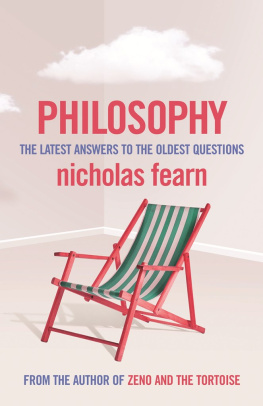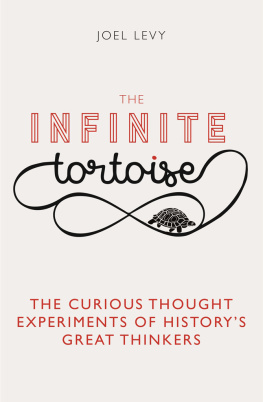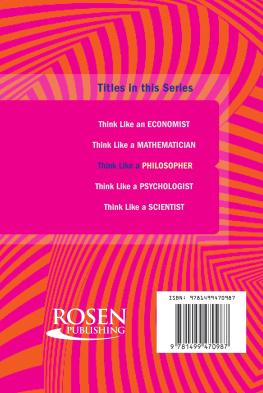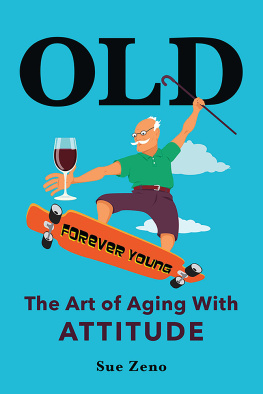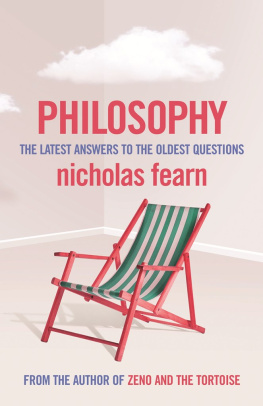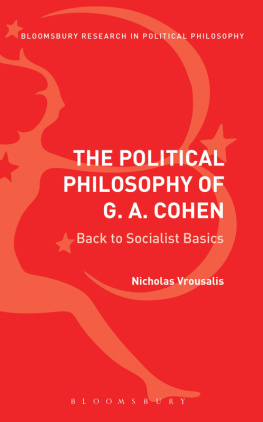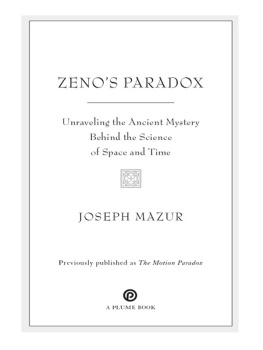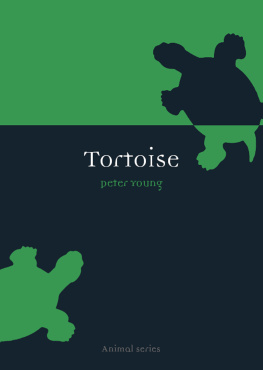zeno and the tortoise
zeno and the tortoise
how to think like a philosopher
NICHOLAS FEARN

Copyright 2001 by Nicholas Fearn
All rights reserved. No part of this book may be reproduced in any form or by any electronic or mechanical means, or the facilitation thereof, including information storage and retrieval systems, without permission in writing from the publisher, except by a reviewer, who may quote brief passages in a review. Any members of educational institutions wishing to photocopy part or all of the work for classroom use, or publishers who would like to obtain permission to include the work in an anthology, should send their inquiries to Grove/Atlantic, Inc., 841 Broadway, New York, NY 10003.
First published in Great Britain in 2001 by Atlantic Books,
an imprint of Grove Atlantic Ltd.
Published simultaneously in Canada
Printed in the United States of America
Library of Congress Cataloging-in-Publication Data
Fearn, Nicholas.
Zeno and the tortoise : how to think like a philosopher/Nicholas Fearn.
p. cm.
Originally published: London : Atlantic Books, 2001.
Includes bibliographical references and index.
eBook ISBN-13: 978-0-8021-9908-9
PhilosophyIntroductions. I. Title.
BD21 .F35 2002
100dc21 2001056491
Grove Press
an imprint of Grove/Atlantic, Inc.
841 Broadway
New York, NY 10003
Distributed by Publishers Group West
www.groveatlantic.com
08 09 10 11 12 10 9 8 7 6 5 4
To Charlotte
Contents
My chief thanks go to Herbert and Sheila Oakes, without whose help and encouragement over many years this book would not have been written.
I am also grateful to my publishers Toby Mundy and Alice Hunt, and to Julian Baggini, Jason Cowley, Tim Crane, Charlotte Foley, Daniel Ghossain, Tariq Goddard, Rebecca Ivatts and my former tutor Alan Thomas, whose teaching style sparked off the idea for this book.
Preface
There is a saying that goes, Dont learn the tricks of the trade, learn the trade, but some tricks are very important to philosophers. Thinking rationally involves the deployment of the right philosophical tool at the right time, be it Ockhams Razor, Humes Fork or some other device from the thinkers toolbox. The most enduring contributions of the great philosophers are the thinking tools, methods and approaches they invent or discover, which often outlive the theories and systems they construct or those that they use their tools to dismantle. This book attempts to take the reader from the earliest examples forged by the ancients through to some of the state of the art equipment employed by todays professional philosophers. The object is to show not merely what the great philosophers thought, but to demonstrate how they thought. Some philosophers, such as William of Ockham and Gilbert Ryle, bequeathed ideas with very specific applications while others such as Thales and Nietzsche are included here for their general approaches and methods. What follows is not an exhaustive inventory, and many great thinkers are left out. Spinoza and Leibniz, for example, are omitted not because their innovations were unimportant or have not lasted, but out of a concern to present that information which is most useful and readily digestible to the general reader.
Being able to apply the techniques of philosophy is a great aid to understanding the doctrines of its greatest exponents. One need not be a violinist to appreciate Vivaldi, but the way in which we metabolize knowledge is different from the way we enjoy music. As thinking human beings, we tend not to feel confident with knowledge learned by rote. Knowing how to multiply by seven, for example, is not just a question of memorizing the seven times table. Children are told that two sevens are fourteen, that three sevens are twenty-one and so on, but do not understand multiplication until they can calculate beyond the examples already given, i.e. 137, 2007... Real understanding requires participation on the part of the learner. We only truly know something when we have applied it, manipulated it or added to it, and this book is designed to enable the reader to do likewise. Moreover, in illuminating how philosophers thought, I hope that non-specialist readers will find themselves able to think along similar lines. It is characteristic of those with genius that their work be wholly original, yet at the same time eminently duplicable. Methods that took philosophical mastery to devise do not necessarily require a philosophical master to reproduce them. Though works of philosophy are sometimes mysterious or impenetrable, the tools used to create them are often remarkably simple and can be quickly grasped and brought to bear on the readers own thoughts.
1 Thaless Well
The world in a drop of water
In the summer of 1999, Cornell University published research purporting to show that love really is a drug. To be precise, it is a cocktail of dopamine, phenylethylamine and oxytocin in the bloodstream that produces the sensation we call infatuation. Love, the researchers argued, was in fact a chemically induced form of insanity. This condition lasts until the body builds up an immunity to the substances involved, which is usually just long enough to meet, mate and raise a child to early infancy. The theory sounds dubious, if not downright offensive. Love, we feel, is the most important thing that can happen to a person and should be placed on a pedestal, not in a syringe with which to inject the loveless. Cornell Universitys conclusions were based on the principle of reductionism: the thought that things can be understood by boiling them down to their component parts, or that complex, large-scale processes can be understood in terms of simpler ones. The research may be overturned sooner or later, but if it survives it will not be the first time our illusions have been dispelled by reductionist thinking.
Another example of reductionism is the belief that tonsillitis is caused by a certain kind of bacterium that has invaded the body, and that the best way to treat the illness is to tackle the germ directly by administering antibiotics. An alternative tactic though not one advised by many Western doctors would be to regard the illness as a malady of the whole body, caused, perhaps, by an imbalance in the individuals entire system. Such a holistic approach will suggest various treatments that may or may not be effective. In very general cases of poor health, a holistic view of the situation may be the most sensible one, or at least an important accompaniment to the reductive approach. Mild heart conditions, for instance, are sometimes treated not with drugs, but by the patient giving up smoking, cutting down their cholesterol intake and taking regular exercise. Even this advice, however, is the product of reductionist investigations into body chemistry and physiology.
Despite the scientific advances it has given us, reductionism is something of a dirty word today. Some of us think that in attempting to understand the universe, we sully it. What it took God divine grace to create, we inspect through intrusive microscopes and disseminate in barbarous human tongues. Armed with the new genetic sciences, a botanist can claim to have decoded the essence of a rose in the plants genome. He or she would be given short shrift by poets such as William Blake, who famously complained that science murders to dissect, or the nineteenth-century aesthete Walter Pater, who wrote that a scientists garden would have written labels fluttering on the stalks for blooms. Even if we do not all recoil so violently from reductionism, many of us feel instinctively that it must deal in crude simplifications, or works to bring nature down to our level. But our level is the only one we have, and there need not be anything wrong with it. The American physicist Richard Feynman argued that we should not be unduly modest about our faculties, remarking that, as a scientist, he could not only appreciate the aesthetic beauty of a flower, but also marvel at its intricate biochemical structures. At the same time, however, we have suffered the follies of Freud and Marx, who reduced too much of human experience to sex and economics respectively. Reduction is a tool that can be misused, but we must remember that it gave us space travel and the Human Genome Project.
Next page

